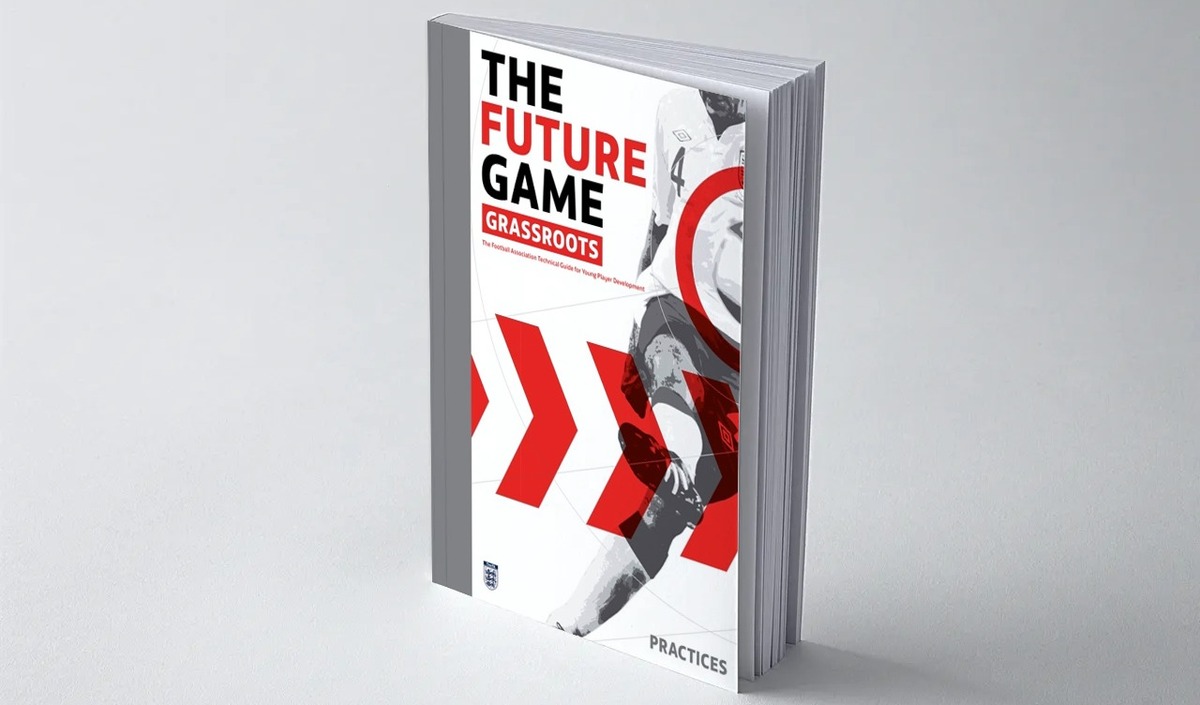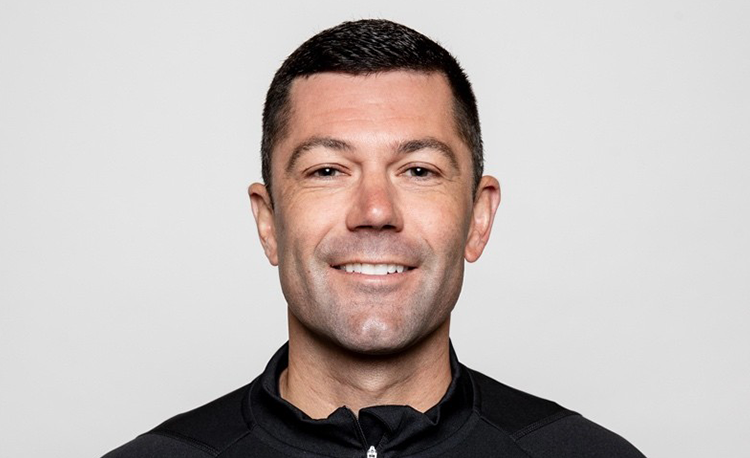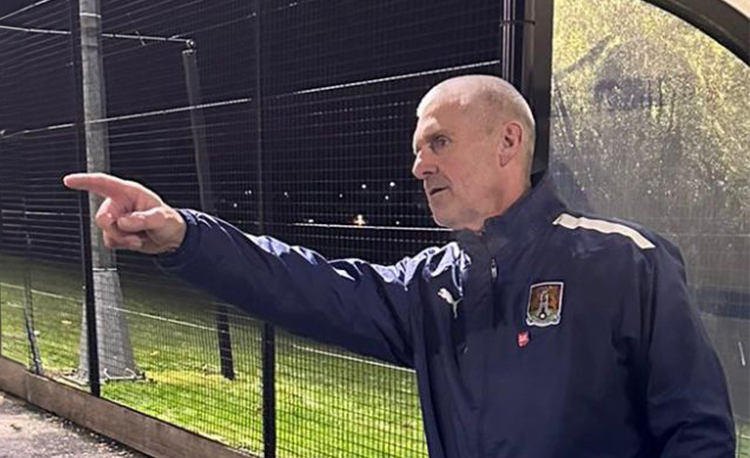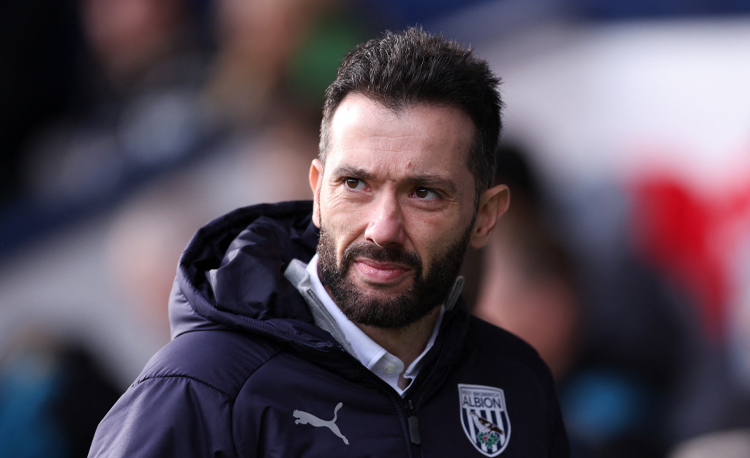You are viewing 1 of your 1 free articles
Forward thinking
The Future Game is the Football Association’s document designed to provide a considered approach to the development of players.
Recognising that other high performing countries have a distinct way of playing, this document examines the benefits of having a stated vision of the type of players and also the type of coaches England needs to develop, if it is to be recognised for playing a more technically excellent game. And of course, the lessons here can be extrapolated for every nation, every team – it’s a blueprint no matter what team you oversee.
There are two versions of the document, an Elite version and a Grassroots version.
In my opinion, the Grassroots version is superior inasmuch as there is far more detail on the philosophy as well as having a separate book of age relevant practices and an accompanying DVD.
The Future Game – Philosophy
This first book sets out a clear vision for the development of players and coaches, and provides an address by Sir Trevor Brooking, who appeals for a collective approach to the development of young players.
The Head of Coaching at the Football Association, John Peacock, offers an overview and some context around the need to make changes, and states that while achievement on the international stage will be indicative of improvement, the benchmark for development must be about so much more than the winning of tournaments.
In keeping with other aspects of the document, he highlights the development of a much larger pool of skilled players being vital to the overall game. In essence, winning is a by-product of such development, not an indicator of it.
Dick Bate, formerly the Elite Coaching Manager of the Football Association, examines how the game has evolved and possibly will evolve in the future, and highlights the importance of anticipating such changes for the benefit of player development.
Women’s National Team Manager Hope Powell, meanwhile, looks at the importance of widening the base of technically proficient players, addressing how grassroots coaches will have an impact on a future international’s learning and understanding of the game. It is therefore important that all levels of coaches have a good understanding of how to provide effective coaching, in doing so passing on a love and respect for the game that cannot be scripted but must come from within.
Playing philosophy
This section looks specifically at the game style to be taught and examines the detail around attacking and defending strategy and tactics. Further examination of game and positional characteristics help coaches gain a clear path towards the development of players under their tutelage.
Strategies and tactics are closely linked to the Principles of Play, which are highlighted in some detail.
The technical and tactical practice curriculum is outlined for older players too, 17-21, while the important role of the coach, age appropriate development for young players, and recognising the distinctions between winning and development are linked to the FA’s Long Term Player Development (LTPD) Four Corner Model. The importance of providing development in each of these four ‘corners’ (technical, physical, psychological and social) is highlighted with specific tips for the coach on how to do so.
Managing behaviour and developing learning through the use of different coaching methodologies (sometimes called ‘interventions’) are also examined in some detail before looking at the benefits of the introduction of new formats for youth football (which are being introduced in England in the 2013/14 season and being phased in over a two-season period).
The Relative Age Effect (RAE) (or ‘birth bias’) reflects on the potential issues affecting players who are born late in an artificial selection period, and provides guidance for coaches in what they can do to offset these issues for the benefit of the developing player. This part of the document also addresses modifications to games and laws in order to facilitate participation in disability football.
The Future Game – practices
This section of the document provides an understanding and examples of the different types of practice available to coaches.
Running through the types of practice, the reader is invited to be aware of the ‘trade off’ as to what the different types of practices provide in terms of player development. Especially, it highlights the reality that most coaches only have players for a limited time each week, and must make maximum use of that time.
The Future Game – DVD
Finally, the pack also includes a DVD. It includes an interview with John Peacock on international tournament football for youth sides, and there are a collection of engaging interviews with former internationals who recall their first coach, why they love football and what type of practices they like to play.
THE FUTURE GAME - The Football Association Technical Guide for Young Player Development. FA Learning Shop.
Editor's Picks
Deep runs in the final third
Using the goalkeeper in build-up play
Pressing principles
Intensive boxes drill with goals
Penetrating the final third
Creating and finishing
My philosophy
Pressing initiation
Compact team movement
Coaches' Testimonials

Alan Pardew

Arsène Wenger

Brendan Rodgers

Carlos Carvalhal

José Mourinho

Jürgen Klopp

Pep Guardiola

Roy Hodgson

Sir Alex Ferguson

Steven Gerrard
Coaches' Testimonials

Gerald Kearney, Downtown Las Vegas Soccer Club

Paul Butler, Florida, USA

Rick Shields, Springboro, USA

Tony Green, Pierrefonds Titans, Quebec, Canada
Join the world's leading coaches and managers and discover for yourself one of the best kept secrets in coaching. No other training tool on the planet is written or read by the calibre of names you’ll find in Elite Soccer.
In a recent survey 92% of subscribers said Elite Soccer makes them more confident, 89% said it makes them a more effective coach and 91% said it makes them more inspired.
Get Monthly Inspiration
All the latest techniques and approaches
Since 2010 Elite Soccer has given subscribers exclusive insight into the training ground practices of the world’s best coaches. Published in partnership with the League Managers Association we have unparalleled access to the leading lights in the English leagues, as well as a host of international managers.
Elite Soccer exclusively features sessions written by the coaches themselves. There are no observed sessions and no sessions “in the style of”, just first-hand advice delivered direct to you from the coach.









